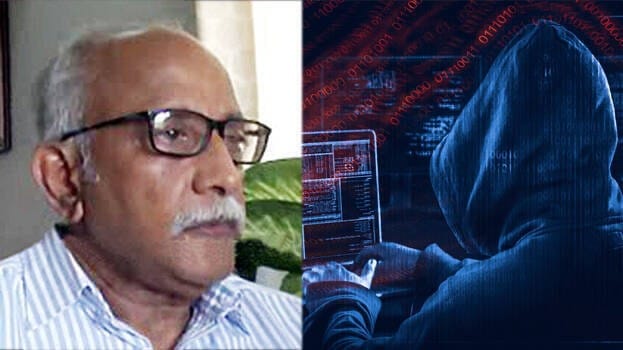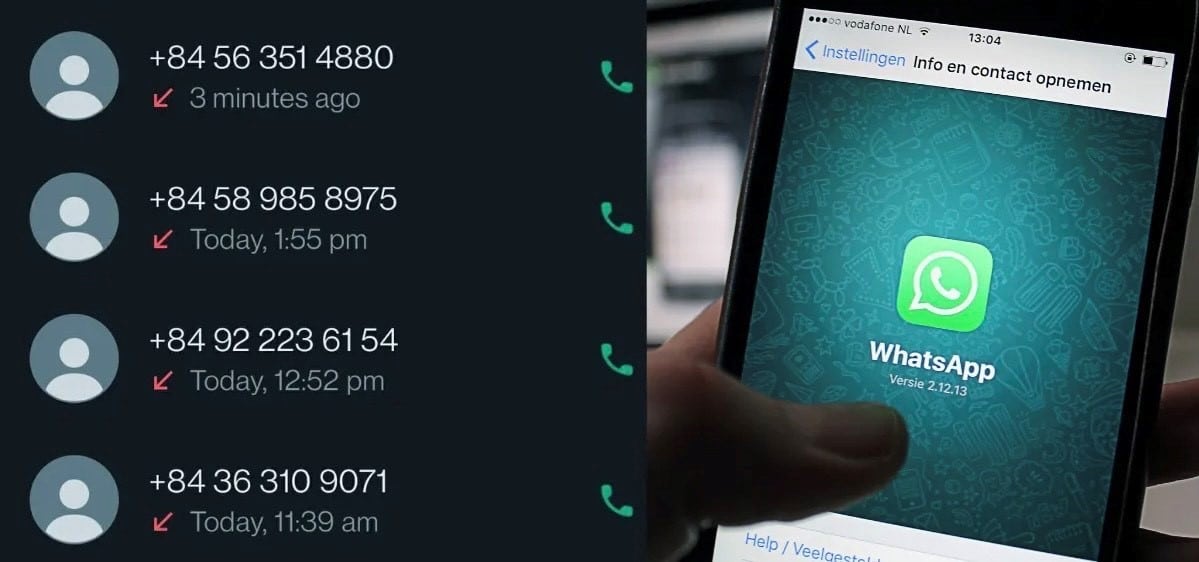HIGHLIGHTS
* Online scammers are now using AI Deepfake technology to scam people.
* In one such case, a Kerala man lost Rs 40,000 to a scammer.
* The victim received a WhatsApp video call from someone who resembled an ex-colleague.
* The victim received a video call from an unknown number on Whats App.
* The caller impersonated his former colleague and requested money for a medical emergency.
* The call was not from the colleague, instead the scammer used deepfake technology to trick the victim.
AI is becoming part of our lives. From planning vacations to providing intelligent personal assistance, artificial intelligence is changing how humans see technology.
However, not everything about AI is beneficial. As this new technology becomes part of everyone’s everyday lives, even bad actors like scammers are trying to update their tricks using AI.
For instance, scammers are now using AI-based deepfake technology to steal money from people.
In a recently reported case of an AI-deepfake scam, a man from Kerala was cheated out of Rs 40,000 using AI-based deepfaking. According to Deccan Herald, the victim, Radhakrishnan, who is a native of Kozhikode, received a video call from an unknown number.
Upon receiving the call, the image of the person on the video call was similar to one of his former colleagues in Andhra Pradesh. To gain his trust, the caller even mentioned the names of some of their common friends.

Thinking it was a genuine call, the victim continued the video call. However, a few minutes into the call, the caller requested the victim for Rs 40,000 for immediate assistance for a relative in the hospital.
Wanting to help his friend, the victim agreed to help and sent the amount online. However, a short time later, the same person asked for Rs 35,000. But this time, the victim became suspicious. He subsequently contacted his former colleague to cross-check.
It was then that he realised he had been cheated and the call was not genuine. The victim then reported the fraud to the police.
Following the complaint, the police started an investigation and tracked the transaction to a private bank in Maharashtra.
The bank authorities later froze the account. According to the Kerala Police Cyber Cell, this is the first such cheating case in Kerala where the scammers used AI technology to fake videos. The racketeers create fake videos using pictures from social media. They can also find information like names of common friends from social media.
Police have further raised an alert against online cheating using AI-based deep fakes. They have cautioned people to double-check the veracity of such requests.
The police have also asked people to alert the police over the helpline number 1930 swiftly in case of any cheating, so that the transaction can be frozen.

AI Deepfake is the new honeypot for modern online scammers. For the uninitiated, AI Deepfake lets anyone pretend to be someone else, but it cannot change the voice and mannerisms completely.
A prime example is the famous scandal involving the comedian Tanmay Bhat and his Snapchat video pretending to be Sachin Tendulkar.
However, that was a Snapchat filter used in 2016, and deepfake tech has come a long way since then through AI.
It’s now practically impossible to tell whether the video is real or deepfaked. Scammers now use this technology to impersonate family or friends to scam money out of unsuspecting victims.
In one such case, a Kerala man lost Rs 40,000 to a WhatsApp scammer. Here is how the incident unfolded.
How AI-Based Deepfake WhatsApp Video Call Managed to Scam Kerala Man?

The Kerala Police has posted a detailed account of the latest AI-based deep fake WhatsApp video call scam on its official social media handles.
The victim Radhakrishnan, who lives in Kozhikode, received a WhatsApp call from an unknown number.
Thinking nothing of it, the victim picked up the call and saw someone resembling a former colleague from Andhra Pradesh.
The caller then mentioned the names of several common friends to gain Radhakrishnan’s trust. Thinking that the caller was indeed his old colleague, the victim continued the call. After the initial small talk, the caller came to the point.
The scammer mentioned that he is currently in Dubai, where one of his relatives has been admitted to a hospital. He then requested Rs 40,000 from the victim, assuring that he would return the amount as soon as he returned to India.
Again, thinking nothing of it, the victim transferred the amount to help a friend in need.
However, Radhakrishnan grew suspicious when the caller asked for Rs 35,000 for the second time. This time, the victim connected with the colleague on their original number and was shocked that they had never called him for money. Realising he had been duped, the victim reported the case to the Kerala Police.
According to the police, this is a first-of-its-kind AI deepfake video call scam reported in Kerala and has requested citizens to be vigilant. Following the complaint, the Kerala Police launched an investigation into the matter.
They tracked the Rs 40,000 transaction to a small private bank in Maharashtra, which the bank authorities have since frozen.
How to Stay Safe Against AI-Based Deepfake Video Call Scams?

The miscreants use pictures posted on social media to create deepfake videos. The names and details of family and friends can also be obtained from tags and social media profiles.
Kerala Police has requested people to be cautious and report any suspected calls to helpline number 1930 so that immediate action can be taken. Below are some precautions to be practised to stay safe.
1. Refrain from entertaining calls from unknown numbers and people.
2. If it appears to be someone known, ask personal questions that only you and they will know to verify the identity.
3. If an unusual request is made, like a request for money or a credit card number, always cross-check with the person on their original number.
4. Look for suspicious signs like a change in voice, glitching video, etc. End the call immediately if you suspect that the video is fake.
5. End the call immediately if they ask for personal information that they should not know.
Deepfake calls are tricky, and someone unaware of the technology can easily for it, just like Radhakrishnan did.
But by following the above tips, you can safeguard yourself and your loved ones from such scams. The best would be to ignore any calls from unknown or suspicious numbers.
What is AI-based deep fake calls

But the question is how scammers managed to trick the victim over a video call? As the call goes live and there is no possibility of editing the clip? Well, as mentioned earlier, the scammers used deep fake technology to trick the victim.
AI-based deep fake calls is a type of scam that uses artificial intelligence to create fake videos or audio recordings of people. Scammers can create these calls impersonating a trusted friend or friend or family member to trick the victim into giving up personal information or money.
Deep Fakes are created using a technique called facial reenactment. This technique involves using AI to map the movements of one person’s face onto the face of another person in a video or audio recording.
This can be done very convincingly, making it difficult to tell that the video or audio recording is real or fake.
While AI-based deep fake calls are a relatively new type of scam, it is becoming increasingly common across the globe. This is because the technology used to create deep fakes is becoming more accessible and affordable.
What makes things more serious is that with deep fake video calls like the one in the above incident, it is difficult for innocent users to distinguish the reality behind the call. As not everyone is aware of this technology.
Faqs
1) How to be safe from AI-based deep fake calls?
Ans) While deep fake calls can be tricky, here are some tips on how to be safe from AI-based deep fake calls:
* Be suspicious of any calls from people that you do not know or that you do not expect. If someone claims to be a friend or family member but you’re unsure of their identity, ask them a personal question only they would know. If they are unable to provide a satisfactory answer, it’s probable that the call is fraudulent.
* Do not give out personal information or money to people that you do not know or trust. If someone calls you and asks for your personal information, such as your Social Security number or credit card number, or asks for money, be aware not to share.
* If you suspect a call might be a deep fake or fraudulent, it’s best to end the call immediately and avoid answering any subsequent calls from that number. You can also independently reach out to the person using a verified phone number that you know belongs to them to verify the identity. This way, you can confirm the authenticity of the call and protect yourself from potential scams or impersonation.
* Report any suspicious calls to the police. If you receive a call that you think may be a deep fake, report it to the police.
Additionally, be aware of the signs of a deep fake call. These signs can include:
* The caller’s voice may sound different than you remember it.
* The caller may be asking for personal information that they should not know.
* The caller may be asking you to do something that you would not normally do, such as send money or give out your credit card number.
2) Kerala Man Conned Of Rs. 40,000 Via AI-Powered WhatsApp Video Call. Here’s How?
Ans) Scammers used AI-generated deepfakes to defraud a man of Rs 40,000 in Kerala’s Kozhikode city. According to the police, the conmen contacted the victim over WhatsApp video calls using a deepfake image generated through Artificial Intelligence (AI) tools.
As per the police, the victim, Radhakrishnan received a WhatsApp video call from his former colleague who worked with him in Andhra Pradesh. However, the man posing as his former co-worker was actually an AI-generated image, they said.
An official of the Cyber Wing of the Kerala police said they received the information on Friday following which the money trail was traced and the particular bank was contacted to block the amount.
Kozhikode-based Scammers are using innovative methods to dupe people of their money. “The scammers used an AI-based video interface to impersonate his friend and sought money,” Cyber Wing SP, Hari Sankar told news agency PTI.
The officer said Radhakrishnan saw one of his former colleagues on video call and responded accordingly. “However, when he received another call seeking more money, he contacted the person directly and found out that he was scammed. Radhakrishnan contacted us immediately and we were able to block the amount,” Sankar said.
The Cyber Wing official urged the public to contact the Kerala Cyber Help Line number ‘1930’ in case of suspicion of any such phone calls.
He said the scammers used a basic AI-based video interface that could only be used with blurred background and basic chin, eyes, and lip movement.
